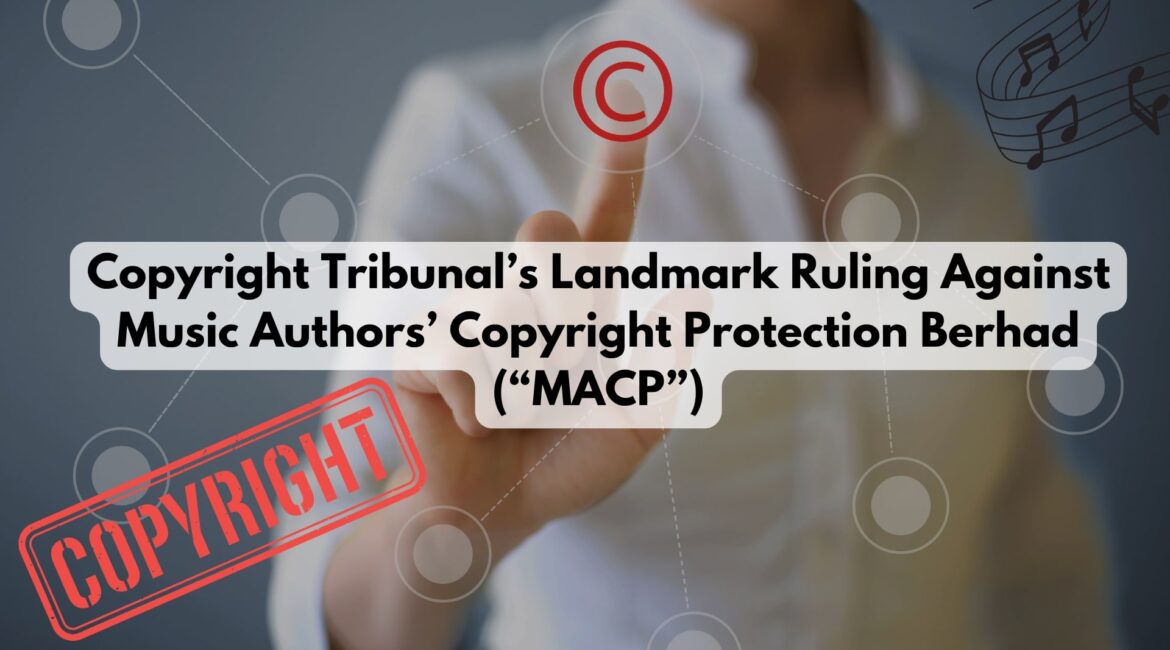Royalty Transparency in Malaysia: Copyright Tribunal’s Landmark Ruling Against Music Authors’ Copyright Protection Berhad (“MACP”).
Abdulkarim Al Ali (“the Applicant”), the composer of the hit song “Casablanca”, believed his royalty payments from Music Authors’ were far too low compared to the song’s success. Despite repeated emails, MACP did not provide clear answers or timely adjustments to his royalty share. Feeling stonewalled, the Applicant brought the matter before the Copyright Tribunal (“the Tribunal”).
To resolve the dispute, the Tribunal carefully considered each issue raised and delivered a set of rulings that directly addressed the concerns of both parties. Instead of focusing on technicalities or procedural hurdles, the Tribunal emphasised fairness, access to justice, and transparency for creators. The following table summarises the Tribunal’s key rulings and their implications for Abdulkarim and, more broadly, for all MACP members:
| NO. | THE TRIBUNAL’S RULINGS |
| 1. | Jurisdiction Confirmed – The Tribunal ruled that it does have power under Section 59C of the Copyright Act to hear royalty disputes. A composer does not need MACP’s consent to bring a case. |
| 2. | Bad Faith Allegation Dismissed – MACP’s claim that the Applicant filed the case for tactical or improper reasons was irrelevant. The Tribunal stressed it exists as an accessible forum for all members, regardless of motives. |
| 3. | Late Evidence Allowed – Even though the Applicant submitted some evidence late, the Tribunal accepted it because it was relevant to the dispute and MACP had the chance to respond. This ensured fairness and justice. |
| 4. | Transparency Gaps Found – Although MACP has a distribution policy, the Tribunal found serious shortcomings in clarity and transparency. It ordered MACP to provide detailed royalty breakdowns, prepare a Transparency Report, and pay any outstanding royalties owed. |
| 5. | Confidentiality Not a Barrier – MACP’s reliance on confidentiality rules and PDPA was rejected. The Tribunal ruled that members have a right to clear royalty information and may even request an audit if they suspect errors. |
This is considered a landmark decision because it shifts the balance of power between individual creators and big organisations like MACP. In simple terms, it means that songwriters and composers don’t need permission from MACP to challenge royalty payments. The Tribunal also made it clear that creators have a right to see where their money comes from and how it is calculated, with the option to demand audits if needed. For all copyright owners, this ruling sets an important precedent: you are no longer left in the dark about your royalties, and you have a direct path to hold CMOs accountable.
Cases like this show that creators and businesses don’t have to stay silent when faced with unclear payments or unfair practices. At Pintas IP Group, our dedicated Intellectual Property (“IP”) team has over 20 years’ experience safeguarding creators’ work and maximising the value of copyrights, trademarks and other IP assets.
Need detailed, tailored advice on protecting and enforcing your copyright or other IP rights? Schedule a complimentary consultation with us today and discover how we can help you protect your work and maximise its value.

